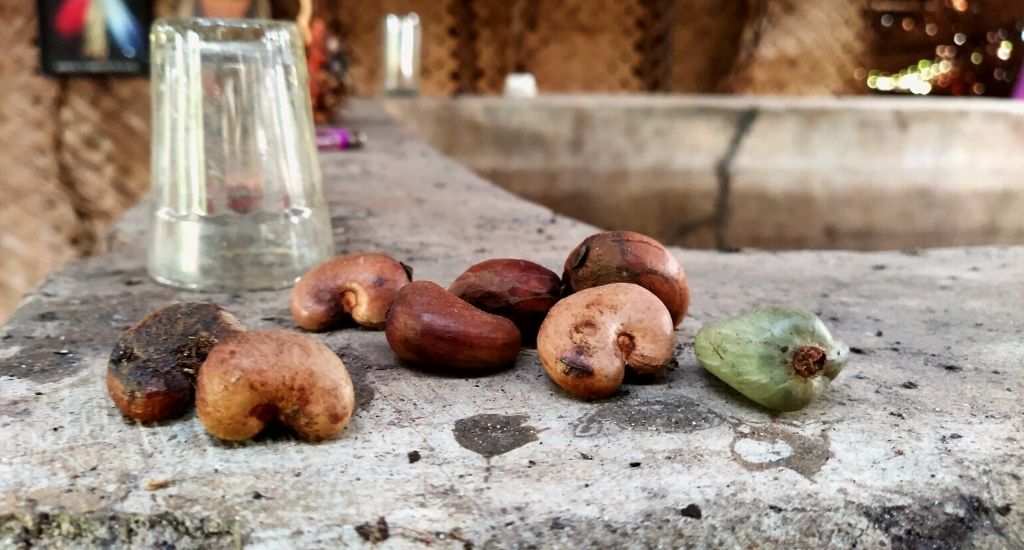
Heritage drink feni high in Goa, falls flat abroad
Prohibitive liquor laws have confined feni to Goa, some distillers tried their hand abroad and failed, but hyper-local brewers still have a steady clientele

Prohibitive liquor laws have confined feni to Goa, some distillers tried their hand abroad and failed, but hyper-local brewers still have a steady clientele
Goa boasts of quaint Portuguese colonial charm, sun-kissed beaches, great seafood and beer. But it’s feni that brings about an epiphany because no other drink catches the Goan spirit of “susegad” as much as this hyper-local beverage does.
Susegad is a colonial hangover of living life in laidback contentment, as much as the cashew introduced to this old world by lusophone sailors four centuries ago. By all means, feni is a byproduct of cashew – the yellow-red pseudo cashew apple, outside of which the prized nut hangs at the bottom. So, the fruit produces both the drink and the snack.

Fruity, nutty, smooth, strong. The descriptors are dime a dozen for this heady drink with an astringent smell, generally drunk with salt, lime and a slit green chilli, topped with soda. The summer favourite is also brewed from coconut and palm sap, each with a distinctive taste and flavour.
Feni has been growing with the flow. It was bestowed the “heritage drink” status by the state government, and in 2000, it got the geographical indication (GI) tag, a sign used on products that have a specific geographic origin, which gives them certain qualities or a reputation, such as sparkling wine from Champagne.
Feni has a rich Goan heritage, but unlike Champagne, or Mexican tequila, or Scotch, the liquor hasn’t found favour outside its home. It had a reputation as a cheap drink, although it has gone from being a country liquor to a mainstream drink in the past decades.
There’s been a real brew-haha over taking the beverage to foreign shores. Many distillers woke up – there was a growing interest in feni because of the culture attested to it. In an effort to attract new drinkers, new concoctions were unveiled – less astringent, without offensive smell or aftertaste, spiked with caffeine, coloured like whiskey.

But swiftly a decadence of entrepreneurs pushed the same ol’ Feni in new bottles, mostly oddly-shaped kitsch such as a violin, a cashew nut, boats, oak barrels and even rockets. Loud claims of vintage were made, outlandish to say the least.
Also Read | How authentic Goan feni is made
Nevertheless, the hubbub has many in Goa’s feni community frothing over with dislike. Quite literally so. Feni comes from the Sanskrit “phena”, meaning froth, and coconut feni is said to have been around since the Vedas.
On one side, the feni uproar is borne out of products that can’t compete in the international market, and the prohibitive liquor laws across the country. On the other, it’s a simple matter of making sure that manufacturers aren’t scamming the system.
Although the Goan government tried to shake up things by labelling feni as a “heritage drink” in 2016, the tipple couldn’t get past the state’s borders. Feni bought in Goa cannot be transported and consumed in neighbouring Maharashtra, let alone Gujarat, which is a dry state.
Goa legislator Deviya Rane recently asked the government to export feni because “almost 80 percent of our cashew apples are thrown away”. Besides, she said “permission to sell it in other states” will help “increase production and new distilleries will come up too”.
That’s a long shot because there are hardly any rules to standardise and regulate the distillation process.
The state’s brewers are pushing the government to explore Japan because they feel that the Asian country understands the importance of craft spirits.
New, niche brands of feni with a range of flavours are available for the discerning tippler. But the locals prefer “the local make”, said Pradeep Palyekar, owner of liquor store Kop De Goa in Arambol.
Almost every family in Goa has a few bottles stashed away for personal use — to raise a toast and as a medication for a variety of ailments like toothache and mouth ulcers, to treat wounds, coughs and colds, and constipation.

Connoisseurs lovingly describe what it’s like to sip a feni: It begins at the front of your tongue, walks back, will drip a little bit down your jawline, a little bit like butter, very velvety.
Goa’s beaches are its most well-known feature, but there is more to the place. Green fields dotted with coconut palms, quaint houses with red-tiled roofs, and winding roads make for a great ride.
Also Read | Goa’s villagers struggle with fewer tourists
Take the opportunity and explore the countryside a little more. A path lined with tall grass and trees leads to a plot where 55-year-old fisherman Sebastiao Fernandes and his family distil feni as a side hustle in Paliem. He is a third-generation feni-maker and sells his brew to local bars and a dedicated clientele.
Feni production was hit last year because the cashew crop failed, said Urmila Kundaykar, 47, whose family has been brewing Goa’s favourite drink the old-fashioned way for decades. Locals in Pernem love the family’s brew and buy from the farm. The family gets a helping hand from the neighbours – the Nanoskars and the Parsekars.
But to let feni fly, experts say, distillers should be wary of complacency and need to evolve and embrace new food, packaging and libation trends, and new technology.
The lead image at the top shows feni is made from cashew apples, the fruit that produces the nut.
Gajanan Khergamker is a Mumbai-based independent writer, solicitor and filmmaker.